Presenting a new weekly series that we know you'll love since Meryl always perks you up. This one is modelled after Anne-Marie's "A Year with Kate" series (Anne-Marie will be back soon with a new series) so it's extra delicious that Meryl's first movie character was named Anne Marie! And now I turn you over to John and Matt. -Nathaniel R
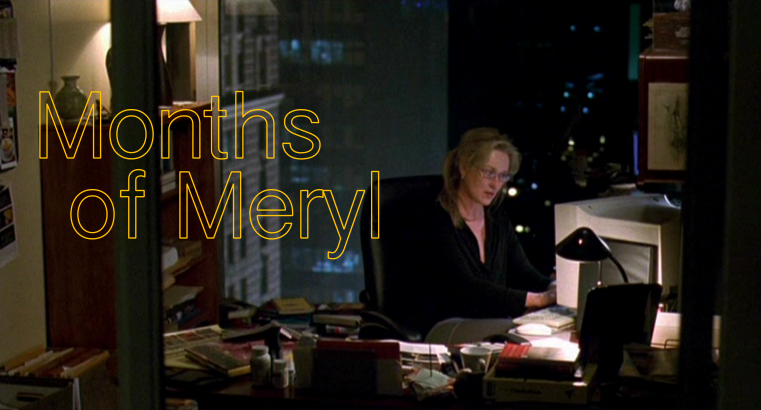
Hi, we’re John and Matt and we are watching every single feature film starring Meryl Streep.
Meryl Streep is the Greatest Actress of All Time. Even those who have never seen a single performance of hers know this woman as, perpetually, the Best Actress. Her career is staggering. Her talent limitless. Her influence infinite. We don’t need to sell these claims, especially here. Dissenters there may be, but the choir roars. We kneel at her altar.
Meryl has acted in 52 feature films. If ever there was ever a body of work that deserves a thorough and complete look, we can think of few others than Meryl Streep’s filmography. Thus, Months of Meryl!
Now, there are a few stipulations. We are choosing to exclude her television projects, which includes Emmy-winning performances in the miniseries Holocaust (1978) and Angels in America (2003). And while we are aware that voice acting is, indeed, acting, we won’t be writing about A.I. Artificial Intelligence (2001), The Ant Bully (2006), or Fantastic Mr. Fox (2009), among others. That doesn’t mean we won’t be watching these performances, but the project works quite beautifully, and evenly, when only considering her 52 live-action film roles, one per week.
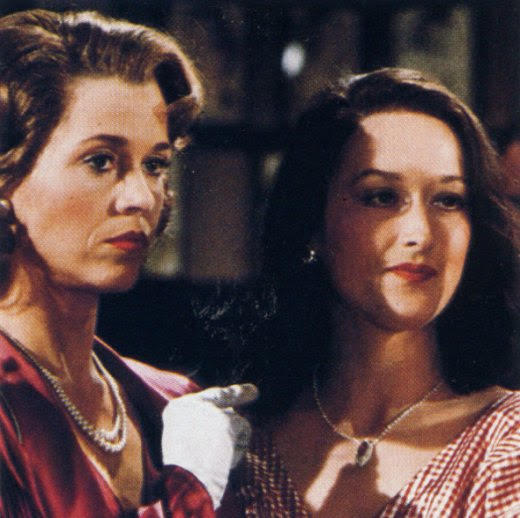 Meryl made her screen debut opposite a total icon and Oscar darling. Fitting, that.It’s important to note that in her first few moments ever on screen, Meryl Streep — modern-day acting heroine, patron saint of thespians, Greatest of All Time — gets as cold a shoulder as one can humanly imagine.
Meryl made her screen debut opposite a total icon and Oscar darling. Fitting, that.It’s important to note that in her first few moments ever on screen, Meryl Streep — modern-day acting heroine, patron saint of thespians, Greatest of All Time — gets as cold a shoulder as one can humanly imagine.
#1 Anne Marie, a prodding New York socialite.
JOHN: Fred Zinnemann’s misty 1977 drama Julia chronicles a heroically daring yet factually dubious mission made by Lillian Hellman (played with unusual indecisiveness by Jane Fonda), in which the legendary playwright manages to outwit the Nazis and smuggle thousands of dollars to her lifelong friend Julia (the otherworldly, Oscar-winning Vanessa Redgrave), an incurable radical attempting to save as many lives as possible in fascist Europe.
As Anne Marie, a gossipy Manhattan socialite, Meryl appears at the midpoint of Julia, just as Hellman gets her first taste of professional triumph with the 1934 Broadway premiere of The Children’s Hour, a success that will soon become eclipsed by (unseen) creative failures and Julia’s pivotal mission.
MATTHEW: Meryl was barely two years out of the Yale School of Drama and had little more than a TV movie about a tragic hockey accident under her belt at the time of Julia’s production. Evidently green and unaccustomed to the technical particulars of film acting, she was literally taught how to hit on-camera cues from a peak-era Jane Fonda, who saw a future legend standing in her frame and preached The Gospel of Streep around Los Angeles upon returning home from Julia’s British shoot. (Fonda also famously fought — without success — to get Meryl cast in her Vietnam drama of 1978, Coming Home, in the eventually Oscar nominated part of the good-time gal that would go to Penelope Milford. I cannot even remotely envision Meryl in such a tart and blowsy role, but her brush with the movie remains a delectable story regardless.)
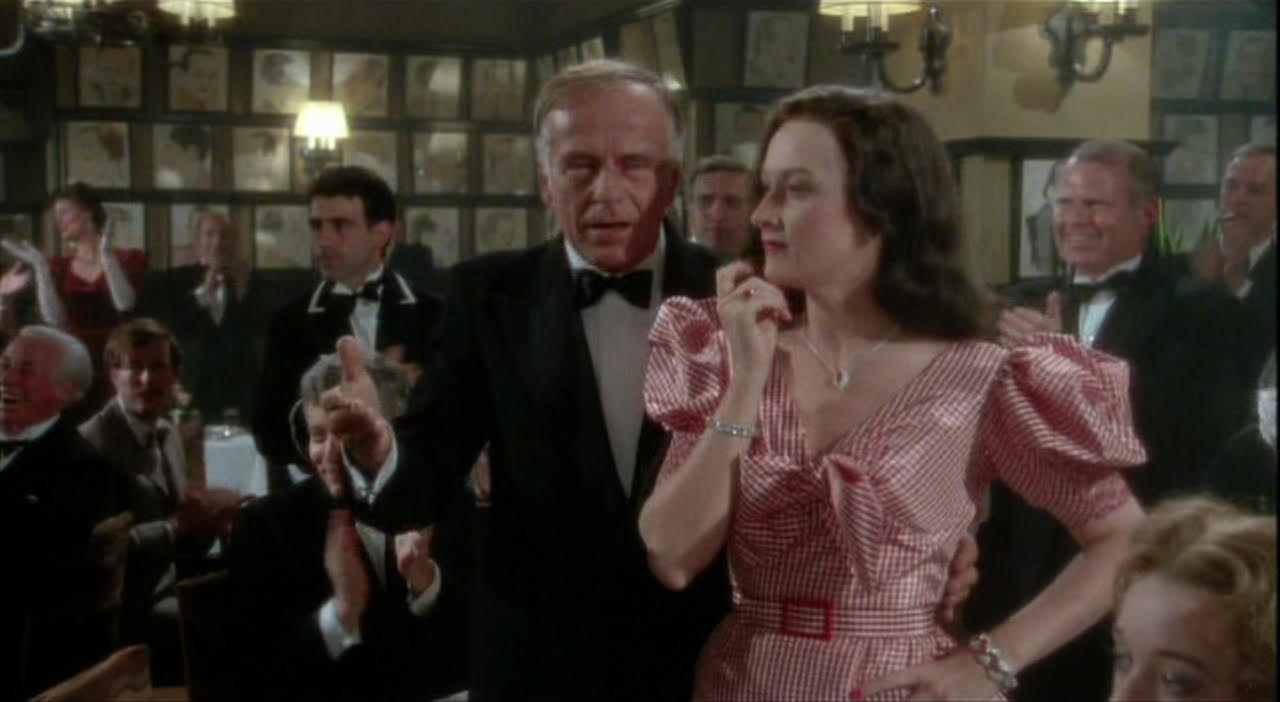
JOHN: Meryl’s memories of filming Julia are much more fun than the wispy performance itself, though I do admire that in her first, tiny part, Meryl basically refuses to be cast aside. A frivolous foil to Jane Fonda’s selfless socialite, Anne Marie stands in for a posh upper crust too preoccupied to interfere with the horrors of World War II. Is it unfair to pile all that contempt onto one woman? Probably. Meryl is loud and ditzy and wears a large hat and decides that making an impression, any impression, is better than slipping by unnoticed. It’s a quick, thankless role for her to play with, even if the performance itself might read, occasionally, as too broad and gimmicky. It’s prophetic that in her first-ever film scene, Meryl is congratulating another woman on her success. What incredible fortune, also, to have your debut be an Oscar juggernaut, alongside two of filmdom’s finest actresses.
MATTHEW: We first catch Meryl in long shot, attached to a witchy black wig that never quite looks natural. She ducks in and out of the applauding group of theatergoing cognoscenti crowding the tables at Sardi’s as Lillian finally makes her arrival, palpably unnerved by the eager ovation. As she passes through the throng, Meryl’s Anne Marie darts up and latches on to the woman of the hour with embarrassingly gauche enthusiasm. Who the fuck is this woman? Eve Harrington without the talent or mystery? Meryl blabbers some good wishes, only to find her moment interrupted as Lillian, frozen with disdain, nonchalantly strolls away, aided by some hangers-on who seem to all but rip Fonda and Streep apart, without even a word exchanged between the two. What follows next is probably the finest moment of this condensed debut as Meryl lifts her hand to her hip and taps a skittish finger on her lips, tracing Lillian’s path yet standing in her wake in such a deliciously specific embodiment of mortified nonplus.
In all honesty, I’m not sure Julia necessarily needed this untested stage actress with the name that everyone apparently found so unusual. Meryl’s first film would be a source of fascination even if it was ABBA: The Movie, but I can’t say for certain that I would have particularly remembered this performance had I been a regular, unacquainted filmgoer circa 1977. She doesn’t cast an imposing shadow over the rest of the movie, or even the ensuing scenes, although this is more a fault of Alvin Sargent’s difficult and prevaricating screenplay, which prohibits even some of Julia’s more focal performers from achieving complete characterizations, aside from the magnificent, movie-making Redgrave. Even so, I don’t immediately see the signs of a an unrevealed force of nature or a bravura natural with an immediate feel for cinematic interpretation in Meryl’s few minutes of screentime. She definitely squeezes as much juice as she can from her second and final scene, standing at a bar with Fonda and making lots of flimsily-veiled insinuations about Julia and her like-minded progressives, impetuously running off to fight alongside the Spanish revolutionaries. She’s catty but soft-jawed, a flibbertigibbet without filter. Meryl imbues the exchange with a credibly opposing perspective and she manages to level the playing field with her superstar scene partner — no small feat for a nervous first-timer — but it’s telling that the most interesting thing we learn about Anne Marie comes much later in the picture, in a luridly-detailed scene where Meryl doesn’t even appear!
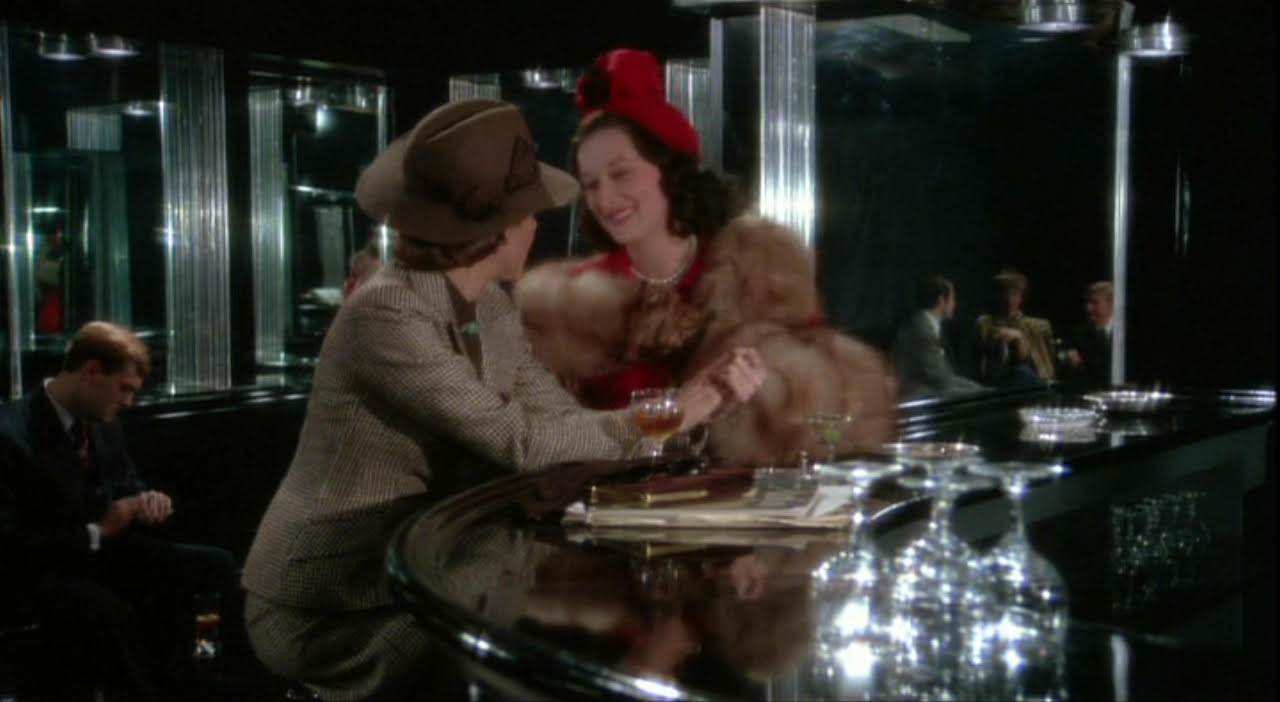
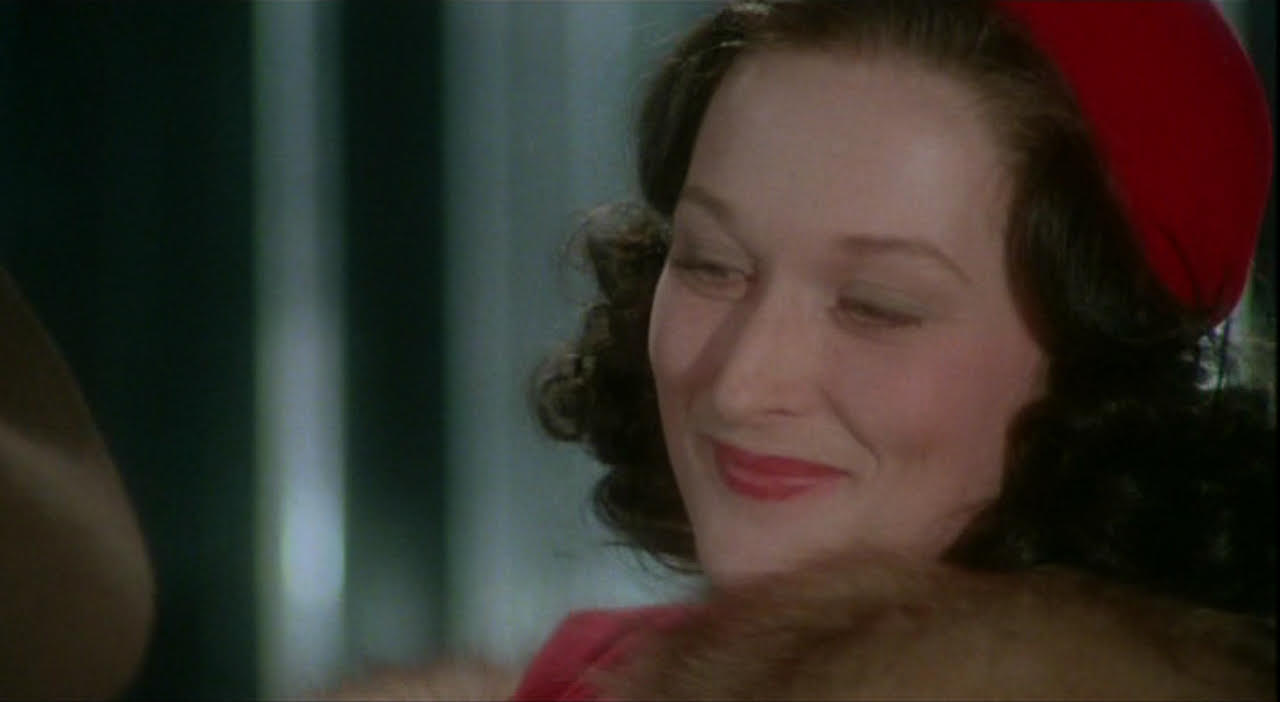
JOHN: In a flashback, Anne Marie’s brother Sammy brags about having sex with his sister, to Lillian’s shock. He then accuses Lillian and Julia of being romantically intimate, to which Lillian slaps him, overturns a table, and storms out of the bar. Can you imagine what a different film Julia would be if Anne Marie and Sammy had more screentime, or if the film actually confronted this unspoken dimension of Lillian and Julia’s relationship? Meryl’s ditsy routine seems, in retrospect, just the tip of some insane sexual iceberg, sadly obscured from our view. I blame a cagey script and timid direction for this sprightly but superficial debut. In her first role, Meryl certainly did not possess the self-assurance nor opportunity to flesh out an underwritten part with her own colorful interior, a feat she would pull off very shortly.
Reader, do you remember Streep’s first appearance on the silver screen? Will you play along with the series? Which films are you most looking forward to either watching or re-watching?